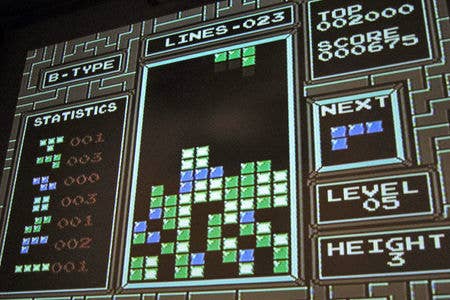Tetris company wins over clone developer
A judge has found in favor of the original Tetris company, not those who developed the knockoff for iOS
The company that controls the classic Tetris brand has triumphed over the creators of the Tetris iOS clone called Mino. In Tetris Holding, LLC v. Xio Interactive, the federal court disagreed with the idea Mino copied only functional elements of Tetris - a similar defense uses by other clone developers. In the case, Xio Interactive admitted to downloading Tetris in order to deliberately copy parts of its for its own version.
According to the developer, this copying did not happen at the code level. The company spent a good deal of time researching copyright law, finally determining that it could copy Tetris as long as it only copied the functional game rules. Xio decided that Tetris was nothing but functional gameplay, and so it set about copying the game wholesale.
The U.S. District Court of New Jersey completely disagreed. The court found that Mino mimicked Tetris because Xio was attempting to avoid developing its own game. The court agreed that Xio copied many small details of Tetris, including playing field dimensions, the display of extra lines, the appearance of "ghost" Tetris pieces, the change in piece color once they're locked into place, and the display of the next piece. Together, the court ruled these details demonstrated infringement.
"Xio is correct that one cannot protect some functional aspect of a work by copyright as one would with a patent. But this principle does not mean, and cannot mean, that any and all expression related to a game rule or game function is unprotectible. Such an exception to copyright would likely swallow any protection one could possibly have; almost all expressive elements of a game are related in some way to the rules and functions of game play," said a court filing obtained by Gamasutra.
"Tetris Holding is as entitled to copyright protection for the way in which it chooses to express game rules or game play as one would be to the way in which one chooses to express an idea."
This case makes it easier for developers to go after the games that cloned them, a large problem in mobile marketplaces like the Apple App Store and Google Play Store.
[Case information via Sunstein Kann Murphy & Timbers, LLP]

